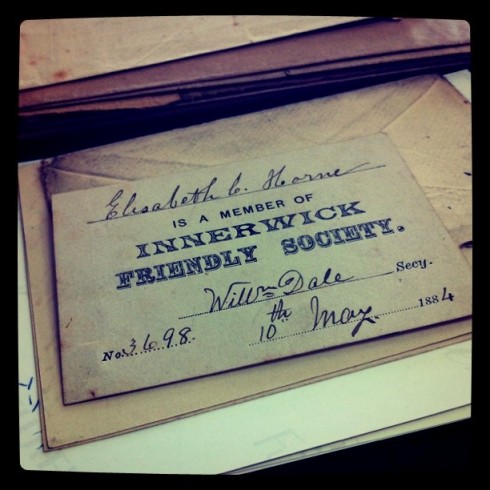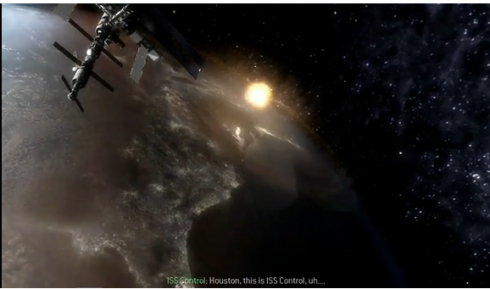Instant Scarcity
 Despite having created a robust world-wide network of information, it seems to me, now more than ever, that we’ve placed our history in peril.
Despite having created a robust world-wide network of information, it seems to me, now more than ever, that we’ve placed our history in peril.
The picture above is of a membership card to a friendly society, essentially an early form of insurance/mutual fund. Having been signed off on in 1884, the card sat, waiting in the back of an accordion file, till it was once again exposed to the light in 2011 – nearly a hundred and thirty years later.
Paper yellows, certainly, but look at the condition of that bit of red-tape: if the dues were up to date, even the most ornery of sticklers would be hard-pressed not to accept it in exchange for a claim.
[youtube_sc url=”http://www.youtube.com/watch?v=MFZo5PqvEak”]
In July 1962, a 1.44 megaton (6.0 PJ) United States nuclear test in space, 400 kilometres (250 mi) above the mid-Pacific Ocean, called the Starfish Prime test, demonstrated to nuclear scientists that the magnitude and effects of a high altitude nuclear explosion were much larger than had been previously calculated. Starfish Prime also made those effects known to the public by causing electrical damage in Hawaii, about 1,445 kilometres (898 mi) away from the detonation point, knocking out about 300 streetlights, setting off numerous burglar alarms and damaging a telephone company microwave link.
Future tests, unfortunately, only went on to prove that an atomic detonation over a populated area would result in damage to electronics exponential to the aftermath of Starfish.

What would archeologists make of our efforts, a thousand years from now, if all they had to observe from our culture were soda bottles and partially-decayed DVDs? Will they assume we were largely illiterate, having been enthralled by the semi-mythical device known as Telly-vision?
That sort of future doesn’t require an incident nearly as dramatic as a nuclear war, either – in a time of shortage, anything may be scavenged and re-purposed.
An elderly Georgian woman was scavenging for copper to sell as scrap when she accidentally sliced through an underground cable and cut off internet services to all of neighbouring Armenia, it emerged on Wednesday.
I’m not saying that we should all give up on the internet, nor am I implying that you should crank up your deskjet and get to printing every website you value, but we do need to consider the fragility of the basket we’ve constructed, even as we continue to plunk our eggy output into its depths.
(Big thanks to @elliesoderstrom (check out her blog, The Gig) for keeping Georgia on my mind.)